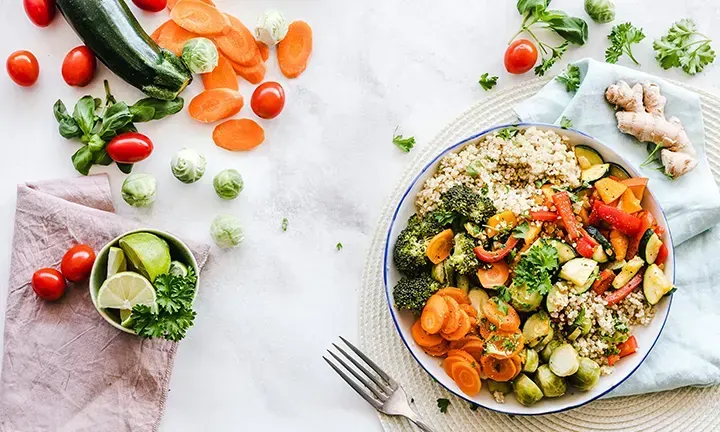The Role of Vitamin D for Pregnancy: Benefits and the Best Dietary Sources
Our body produces Vitamin D when exposed to sunlight. This is why vitamin D is also called the “Sunshine Vitamin.” Vitamin D is essential for maintaining bone health. However, its benefits go way beyond just that, especially for pregnant women. It is crucial to get enough Vitamin D when pregnant for the health of the baby and the expectant mother. In this blog, we will explore the importance of Vitamin D for pregnant women, its benefits, how much of it is required and foods rich in Vitamin D.
Importance of Vitamin D during Pregnancy
Vitamin D plays a pivotal role in the overall health of pregnant women and their developing babies. It helps in the absorption of calcium and phosphate in the body, which are essential for proper development of the baby’s heart, kidneys, nervous system, bones and teeth. Even after giving birth, the lactating mother is the only source of Vitamin D for her baby. Many studies have now linked low serum vitamin D levels with an increased risk of certain types of cancers, autoimmune diseases, neurological diseases, insulin resistance and cardiovascular disease.[1] Vitamin D also plays a role in strengthening the immune function, healthy cell division and bone development of the baby.
How much vitamin D is required
The recommended daily intake of vitamin D for pregnant women is 10 micrograms (mcg) or 400 international units (IU). However, individual needs may vary, and it is always best to consult with a healthcare provider to determine the appropriate dosage based on specific circumstances.
Steps to take to meet the daily requirement of Vitamin D During Pregnancy
You can start by incorporating more foods rich in vitamin D for pregnant women into your diet. Additionally, research suggests that moderate sun exposure early in the morning (typically 5-10 minutes on the arms and legs or the hands, arms and face, 2 or 3 times a week) can also be beneficial.
However, the most reliable way to ensure adequate vitamin D levels is through supplementation. There are two main forms of vitamin D supplements: ergocalciferol (a vegetarian form) and cholecalciferol (an animal-derived form, usually sourced from fish liver oil or lanolin from sheep). Cholecalciferol is the most easily absorbed and utilised by the body but if you follow a vegan diet, ergocalciferol is a suitable alternative. It's important to choose a high-quality supplement.
These supplements are often carried in organic, extra virgin olive oil and come in small, easy-to-swallow soft gels. Additionally, it is recommended to take DHA with added vitamin D3 for further benefits.
Foods high in vitamin D
1. Fatty Fish
Salmon, mackerel, and sardines are excellent sources of vitamin D3 while pregnant.
2. Egg Yolks
The fat, vitamins and minerals in the eff are found in the yolk. Including egg yolks in your diet can provide a good amount of vitamin D.
3. Fortified Foods
Many foods, such as cow milk, soy milk, orange juice and cereals, are fortified with vitamin D and can be beneficial additions to the diet.
4. Mushrooms
Just like humans, mushrooms can also produce vitamin D when exposed to sunlight. However, mushrooms are rich in Vitamin D2 when exposed to sunlight and it is important to get vitamin D3 while pregnant.
Conclusion
Ensuring adequate vitamin D levels during pregnancy is essential for the health and well-being of both the mother and the developing baby. From promoting strong bones to reducing the risk of pregnancy complications, vitamin D offers numerous benefits. Pregnant women should aim to meet their daily vitamin D requirements through a combination of sunlight exposure and a diet rich in vitamin D. Consulting with a healthcare provider can help tailor a plan to ensure optimal vitamin D levels throughout pregnancy.

